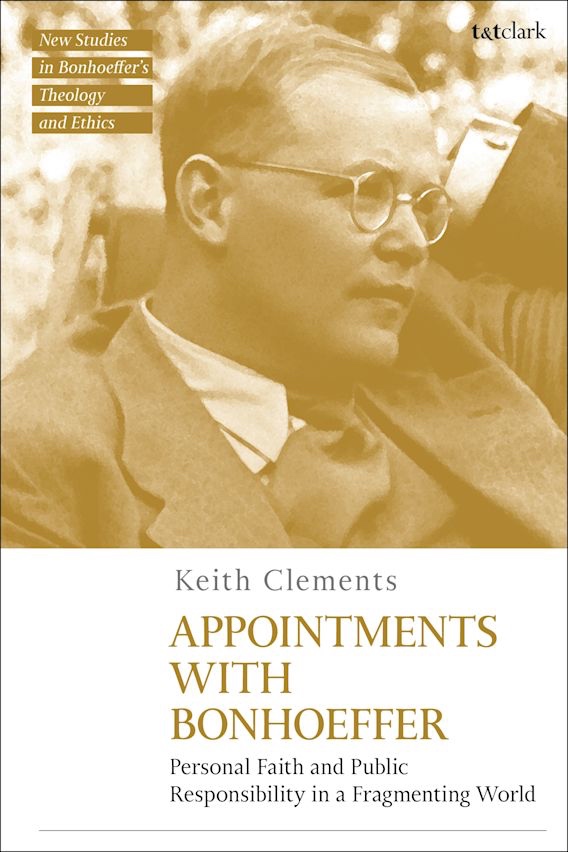Appointments with Bonhoeffer by Keith Clements
'Appointments has the air of a tour conducted by a specialist, going from room to room opening new vistas'
 Appointments with Bonhoeffer - Personal Faith and Public Responsibility in a Fragmenting World
Appointments with Bonhoeffer - Personal Faith and Public Responsibility in a Fragmenting World
By Keith Clements
T & T Clark
ISBN: 978-0567707055
Reviewed by Alec Gilmore
After sixty years Bonhoeffer is most likely to be remembered either as a victim of Naziism or the author of Letters and Papers from Prison, with a batch of questionable soundbites, notably ‘Religionless Christianity’ and ‘Jesus, the Man for Others’.
These soundbites have often been misunderstood or casually dismissed, sometimes at the expense of serious thought, a misfortune now rectified by ‘Appointments’, defined as ‘a serious engagement or ‘dialogue’. Reading it is like visiting an exhibition of an established author, going from room to room opening new vistas. If Letters and Papers was Bonhoeffer knocking at the door, Appointments has the air of a tour conducted by a specialist.
Room One puts the man, the rise of National Socialism in Germany and the dilemma for the British churches in the 1930s in context. For Bonhoeffer this coincided with a two-year spell ministering to two Germanic congregations in London (1933-35) demonstrating an open ’ecumenical’ mind and cherishing a variety of relationships with eminent figures, notably von Hugel (Catholic Modernism), Oliver Tomkins (SCM), J H Oldham. a leading light in the formation of the WCC (Christian Frontier Council), and George Bell (Bishop of Chichester)’. This latter relationship enabled him to make a flying visit to Bell in 1939 to avert the war.
Room Two takes us into ‘Religionless Christianity . . . moving a ‘stopgap God’ from the borders of life to the centre, reversing the emphasis from ‘how to relate God to the world’ to ‘how to relate our world to God’s world’, and seeing ourselves not as human beings seeking a spiritual life, but fundamentally spiritual beings seeking to identify God in our world: the very heart of our Bonhoeffer tour.
Room three offers full treatment of Stellvertretung (‘vicarious representative action‘), with Jesus as ‘the Man for Others’, and describes ‘being-for-others' (including 'the neighbour within reach in any given situation’) as an experience of transcendence.
Room Four. Shortly before his execution, Bonhoeffer foresees the end of 'an individualistic religion' confining God to a realm outside this visible world of time and space which 'sees 'salvation only in a realm the other side of death’, as coming to completion, leaving us with something partial, a sacred sector of life. On the contrary it is our life as a whole which is claimed and transformed by God, where maturity is not becoming more religious but more fully human, and where life is seen from a ‘worldly’ rather than a ‘churchy’ point of view.
As we leave we see (as it were) pictures on the wall to fill in the details: Bonhoeffer, an influence stronger in death than in life (particularly in Eastern Europe), the end of tribalism (with oikumene as the whole household of God), the fire of love, the price of truth and the cost of reconciliation.
To read it was a spiritual experience. The success of any book depends on a good narrative, but the narrative is only ever part of the story. It’s the way you tell it! Appointments succeeds on both counts.
Alec Gilmore is a Baptist minister
Baptist Times, 26/01/2023